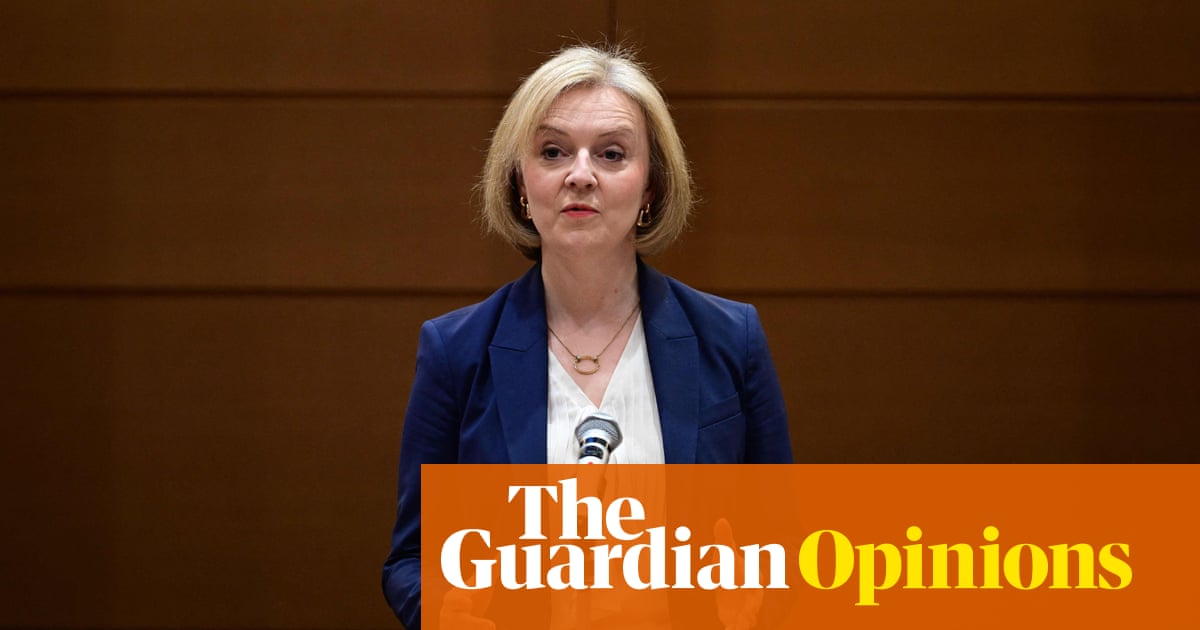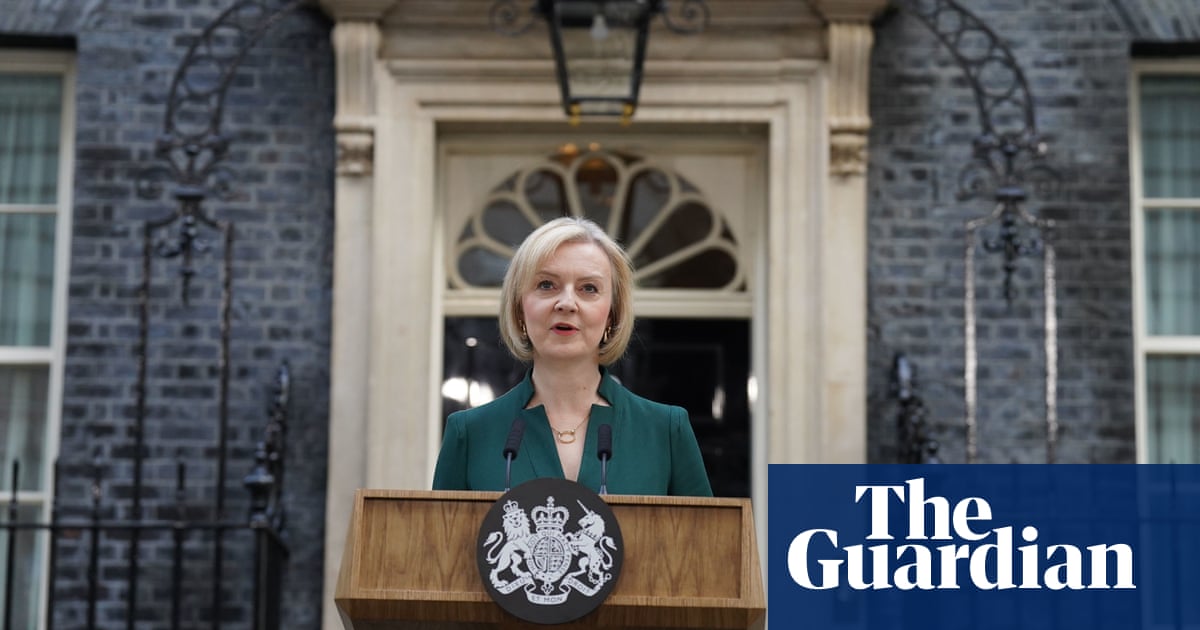
The ecological destruction Liz Truss plans to unleash on this country is not collateral damage. It is not a byproduct of her economic programme. It’s a mark of true faith, a sign that she is following her ideology to the letter. For fundamental to this doctrine – neoliberalism – is the belief that everything on Earth can and should be turned into something else.
The founding father of neoliberalism is Friedrich Hayek. His frankly deranged tract The Constitution of Liberty enjoys almost biblical status among his disciples. Margaret Thatcher was perhaps the book’s most famous advocate, and Truss now carries the flame. It inveighs against the protection of the living world. Rather than seeking to protect the soil – the delicate ecosystem from which 99% of our calories are produced – Hayek says it makes sense to extract as much value as it can produce, exhaust it “once and for all”, then abandon the land. The role of soil is to create a “temporary contribution to our income”, which we can then invest in other moneymaking schemes. For “there is nothing in the preservation of natural resources as such which makes it a more desirable object of investment than man-made equipment”.
Our destiny, according to this belief system, is to turn nature into money. If you point out that the ecological collapse this causes will destroy every aspect of our lives, including our economy, neoliberals reply that resources are, in effect, infinite: minerals will continue to be found, ecosystems will renew themselves. This summer, as the drought that now threatens our rivers and water supplies began, John Redwood MP stated: “The water regulators and companies want us to use less water in the years ahead. Why? Water is the ultimate renewable resource, available in abundance on our planet. They should get on with putting in the capacity so we can use what we want.”
This mindset denies not only environmental crises, but material reality. If money – which is all they know – can be magicked into existence, why can’t everything else?
It is within this frame that we should understand what Truss proposes. She wants to rip down our planning controls, creating “investment zones” in which corporations and oligarchs can build what they want. The policy is justified by trickle-down economics: let the housebuilders do their worst, and some of the homes they build might be affordable to the poor. But the industry uses endless ruses to avoid building affordable homes, and it carefully manages supply, sitting on its land banks to keep prices high. There are far better ways of getting the housing we need. A team of us proposed some of them in our report to the Labour party, Land for the Many. But the defensive ring built around property by the billionaire press frightens almost everyone away.
Truss’s proposals, by contrast, solve nothing, while permitting scarcely regulated urban sprawl across some of the most beautiful landscapes in England. According to the Adam Smith Institute, one of the dark-money lobby groups that has shaped her thinking and supplied some of her key advisers, these zones are a step towards dismantling the planning system nationwide.
She is also rushing through parliament a bill that will delete 570 environmental laws inherited from the EU. The speed of this programme ensures that, even if she intends to replace them with laws of equal strength, there would be a regulatory hiatus in which anything goes. All experience suggests that she will not replace them with laws of equal strength, but introduce weaker laws or none at all.
It was Truss who turned me vegan. In 2015, when she was environment secretary, I stumbled across a shocking case of river pollution: a dairy farm had built a pipe from one of its slurry lagoons into a river, reducing a beautiful ecosystem to a stinking sewer. I reported it to the Environment Agency, but it refused to take action. After I expressed my astonishment in the Guardian, two separate whistleblowers from the Environment Agency contacted me. They told me, citing pressure from the government, that they had been instructed to disregard all incidents of this kind. If the government wasn’t prepared to regulate the industry, I decided, I wasn’t prepared to eat its products.
Truss volunteered her department for massive funding cuts. Against the advice of experts, she insisted on letting farmers dredge the watercourses passing through their land, without oversight or regulation. An Environment Agency report showing how such dredging wrecks the ecology of streams and rivers while increasing the risk of flooding downstream, was deleted from government websites. She was the worst environment secretary we’ve ever had, which is quite a feat when you remember her predecessors.
Now her government plans to ditch the only genuine benefit of Brexit. The EU’s common agricultural policy, which pays farmers for maintaining land in “agricultural condition”, is one of the most destructive policy instruments on Earth, a giant perverse incentive to destroy wildlife habitats. This was going to be replaced in the UK with the payment of public money for public goods, such as the protection and restoration of habitats. But, to the delight of the National Farmers’ Union and the horror of the good farmers that it fails to represent, the government will revert to the regressive practice of paying people to own land. It’s another transfer of money to the rich and another incentive for destruction.
Truss has reversed the ban on fracking in England, though even the founder of the UK’s first fracking company says it’s a waste of time here. Never mind the geology, it’s the principle that counts. Truss gave the energy brief to Jacob Rees-Mogg, or Re-Smog as environmentalists call him. He has told his staff “we have to get every cubic inch of gas out of the North Sea”: a policy that, if replicated around the world, commits us to Earth systems collapse.
We should see Truss’s government as an experiment: what happens when neoliberal ultras, schooled by the dark-money thinktanks, get everything they want? Result: the economy falls off a cliff, while the fabric of the nation is ripped apart. Conclusion: we should never again let such people near government.
At last, the big conservation groups are stirring. The RSPB, the Wildlife Trusts and the National Trust, with a combined membership of almost 8 million, now talk of mobilising. It’s about time: for far too long they have failed to use their power, while successive governments have laid waste to the land. But, in fighting it, we should stop interpreting Truss’s vandalism as an accidental outcome of other policies. It is the policy.
George Monbiot is a Guardian columnist












